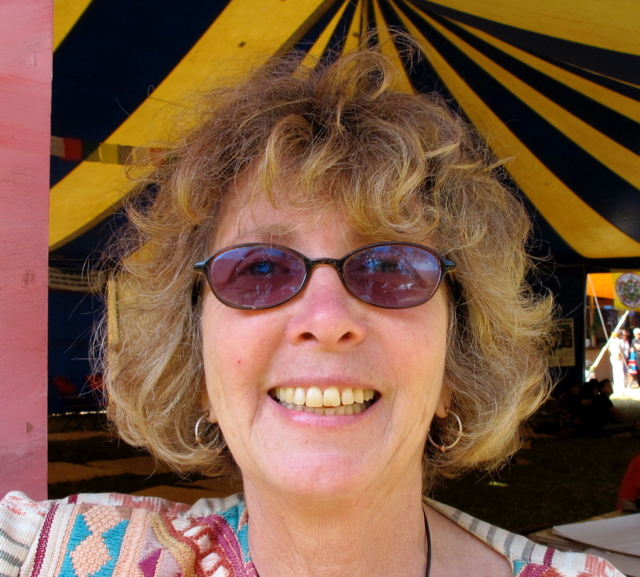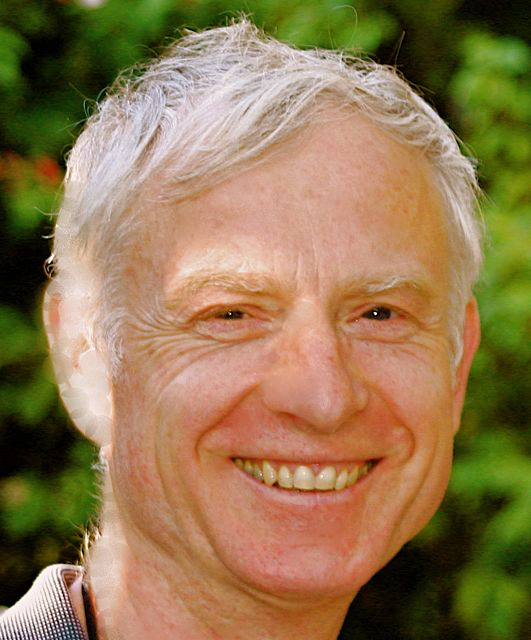Liora Adler and Andrew Langford have been deeply involved as leaders in ecovillage, permaculture, bioregional and facilitation worknets for over thirty years. Through Gaia University, they pioneered educational designs that have allowed learners to discover and demonstrate grounded solutions to complex ecological and social problems through the integration of ecosocial theory and hands-on practice.
Liora Adler
1946-2024

(Alejandra) Liora Adler was a visionary social actionist, educator, facilitator, mentor, event organizer, psychologist, holistic nutritionist and dancer. Raised during the 60’s social movements in the US, she came to understand that protest alone was inadequate for making substantive societal changes. Consequently, throughout the 70’s and 80’s she explored supportive, purposeful community building that provided both for physical needs and the basic human need for belonging.
In 1982 Liora co-founded a thriving ecovillage, Huehuecoyotl, in central Mexico, and in 1996, a mobile ecovillage and training center, la Caravana Arcoiris por la Paz that for 13 years, shared knowledge of ecological systems and regenerative living while activating ecosocial movements throughout Latin America.
Liora was a global leader in the ecovillage movement, where she served on the Board of Directors of the Global Ecovillage Network and as a representative to the United Nations. She spent most of her adult life in Mexico and other parts of Latin America where she also helped form a village women’s sewing cooperative and a men’s campesino collaborative. She was a fluent Spanish speaker and had significant cultural and socioeconomic sensitivities. She organized courses, workshops, events and artistic activities for 100s of people, including farmers, indigenous peoples, and permaculture practitioners on 5 continents. She was the lead organizer for the 2003 bioregional gathering of 800 people in Peru: El Llamado del Condor.
As co-founder and co-president of Gaia University up until her passing, Liora was intimately involved with its design and development. She also managed operations, and mentored students and staff. Her feisty, outgoing nature, her capacity to negotiate for practical action in challenging situations and her resonance with people living both very simple and highly complex lives was key to the legacy of Gaia U.
With her husband, Andrew Langford they co-founded Cambia: Drawdown by Design, an innovative ecosocial enterprise based on over two years of research under a grant from the Lush cosmetics company. Cambia has designed a holistic, permaculture-based system to grow almonds in CA, USA using 50% less water, increasing carbon drawdown from the atmosphere by 5 times and yielding a 40% increase in farm income. The 1000 trees which have thus far been planted with these special rootstocks and planting techniques are thriving!
For the last years of her life, she and Andrew returned to their home in Mexico and put their attention to the pioneering alternative accreditation system they have been developing: iCAAFS- the International Cooperation for the Accreditation of Ancient Future Skills as well as a Regenerative Agriculture project in collaboration with the UNDP and Dept of Organics of the Ministry of Syria in which they have been training 100+ field and extension agents in permaculture, biodynamic and syntropic techniques which they pass along to the local campesinos. She and Andrew were also the Knowledge Exchange Coordinators of the Ecosystem Restoration Camps Foundation.
Liora’s legacy with Gaia U lives on through the Liora Adler Scholarship Fund, an initiative through the Gaia U Foundation that provides scholarships to students in marginalized parts of the world who are doing some of the most important resilience work on our planet. As Liora would often say at the end of a meeting or email sign off, “Adelante”!
Andrew Langford
Co-founder, Gaia University
b.1949, Totnes, England

Andrew is an unusualist, a possibilist and a lover of small-scale living associated with large-scale thinking. In the early 1970’s, influenced in part by the book Small Is Beautiful: Economics As If People Mattered, he transitioned out of an early career in industry to design and develop an open source, human-scale shoemaking workshop at a time when the mainstream manufacturing industry in England was abandoning the domestic workforce in favor of cheap labor pools on the Pacific Rim.
Andrew and his family supplemented their income through this 10-year period by cultivating an intensive smallholding, growing vegetables, wheat, pigs, chickens, geese and sheep. This smallholding provided essential resources and taught Andrew a profound life-lesson: people with willing hands and access to even modest amounts of fertile land and viable seed can provide for a good portion of their own needs, and this relative self-reliance confers upon them a great deal of freedom.
This experience primed Andrew to be an early adopter of permaculture design thinking when it first spread through Europe in the 1980’s. He soon became the first permaculture design teacher in Britain, and had a successful business designing at garden and farm scale for private clients, as well as designing urban retrofits for local governments. He also applied his qualifications from a Diploma in Management Studies and an M.Sc. in Organizational Analysis and Development to set the Permaculture Association of Britain on a successful course towards establishment. In 1993, Andrew designed and implemented the Diploma in Applied Permaculture system, an action learning worknet for the development of professional permaculture designers that has become a basis for capacity building operations in several northern European countries.
Andrew is a strong advocate for participatory learning and decision-making and is skilled in a variety of facilitation methods, including Future Search and Open Space Technology. He is the author of Designing Productive Meetings and Events, a field manual for UN Agenda 21 facilitators, and a recognized teacher of Re-evaluation Counseling, which promotes the discharge of internal distress and resolution of rigid, patterned thinking as primary routes towards the emergence of healthy, intelligent human cultures.
In Gaia U, Andrew has championed action-based learning arising from thoughtful and protracted engagement over more common cerebral academic approaches. Now in an Advisory Board role, he contributes his years of experience and wisdom as the new owners steward Gaia U into it’s next iteration.